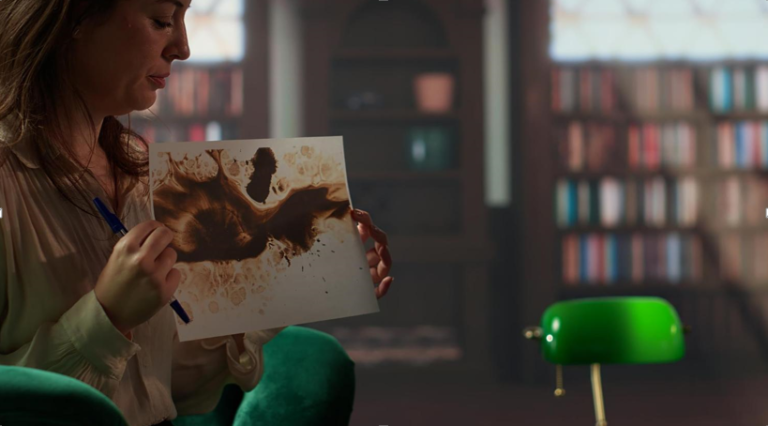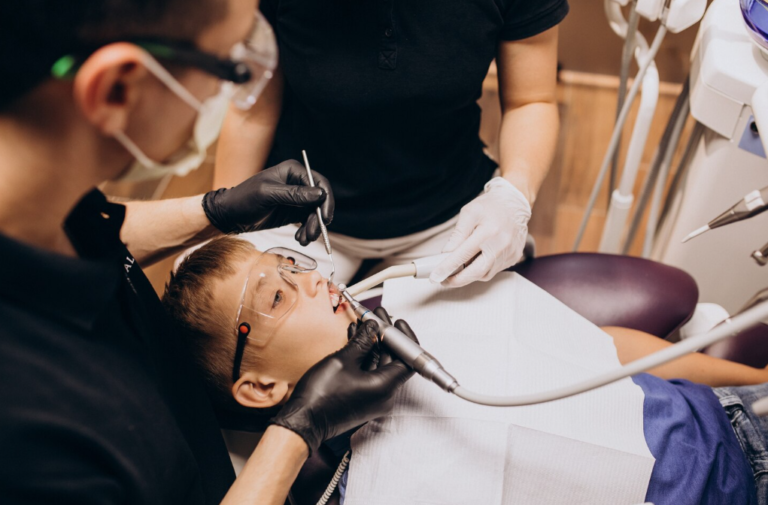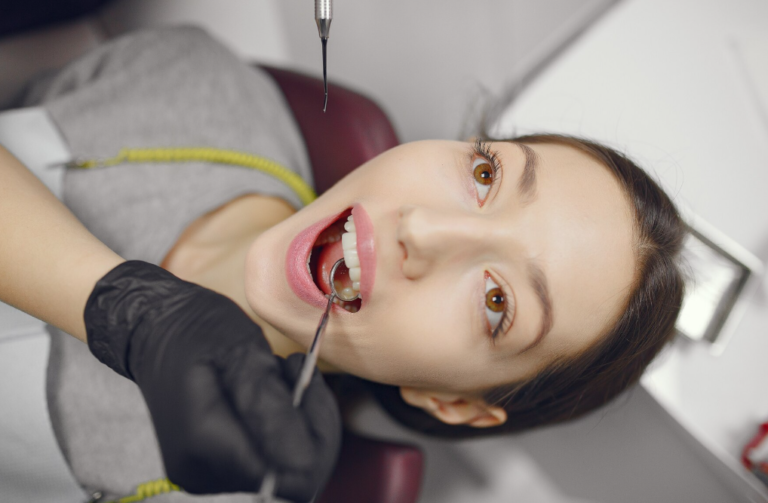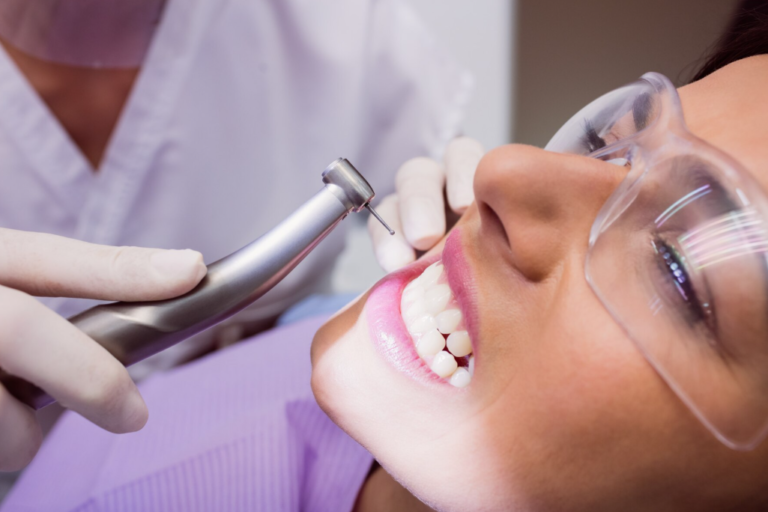Finding an Emergency Dentist in Mississauga: Your Guide to Urgent Dental Care

Understanding Dental Emergencies in Mississauga
Knowing what qualifies as a dental emergency is crucial, especially when you’re in Mississauga and need urgent care. A true dental emergency isn’t just a small inconvenience; it’s a serious situation that requires immediate attention to relieve severe pain, prevent further damage, or address potentially life-threatening issues. This guide will walk you through what to look out for and when to contact an emergency dentist in Mississauga to get the prompt care you need.
What Constitutes a Dental Emergency?
So, what exactly is a dental emergency? It’s any situation that needs immediate attention from a dentist. This could include:
- Severe, unbearable toothache that doesn’t go away with over-the-counter pain meds.
- Uncontrolled bleeding in your mouth after an injury or surgery.
- A knocked-out tooth – time is of the essence to try and save it!
- A serious infection with swelling in your mouth or face.
- Injuries to your jaw that affect your ability to open or close your mouth properly.
Knowing the difference between a minor issue and a real emergency can save you a lot of stress and potentially save your tooth. Don’t hesitate to call your dentist if you’re unsure; it’s always better to be safe than sorry.
Immediate Dental Emergencies Requiring Urgent Care
Some dental problems need attention right away, like within 30 minutes. These include:
- Knocked-out tooth: Handle the tooth carefully, rinse it gently (don’t scrub), and try to put it back in the socket. If that’s not possible, keep it in milk or saliva and get to a dentist immediately.
- Extruded (partially dislodged) tooth: See a dentist as soon as possible to reposition and stabilize the tooth.
- Severe Bleeding: Bleeding that won’t stop after applying pressure for a while needs immediate attention.
Non-Imperative Dental Emergencies
Not all dental issues require a mad dash to the dentist in the middle of the night. Some can wait a day or so. These non-imperative emergencies include:
- A lost filling, crown, or bridge.
- A chipped or cracked tooth (if it’s not causing severe pain).
- A broken retainer or night guard.
- Food stuck between your teeth that you can’t remove yourself.
- A mild toothache that’s manageable with pain relievers.
Even though these aren’t as urgent, it’s still a good idea to see a dentist within a day or two. Delaying treatment can sometimes lead to bigger problems down the road.
Finding an Emergency Dentist in Mississauga
When you’re hit with a sudden toothache or injury, finding an emergency dentist in Mississauga becomes a top priority. It’s not always easy to think clearly when you’re in pain, so having a plan can help. Let’s explore how to locate immediate dental care when you need it most.
Locating a 24-Hour Emergency Dental Clinic
Finding a clinic that’s open around the clock can be a lifesaver. Here’s how to track one down:
- Online Search: Start with a quick search for “24-hour emergency dentist Mississauga.” Google Maps can show you what’s nearby and their hours.
- Call Your Regular Dentist: Even if they aren’t open, their answering service might have info on emergency coverage.
- Check Dental Directories: Some websites specialize in listing dentists, and you can filter by emergency services and hours.
It’s a good idea to save the numbers of a couple of 24-hour clinics in your phone. You never know when you or a family member might need them.
Contacting Woodlands Dental Centre for Urgent Care
Woodlands Dental Centre is a great option for urgent dental needs. Here’s how to connect with them:
- Call Directly: The fastest way to get help is to call their emergency line. Make sure to explain your situation clearly.
- Check Their Website: They might have an online booking system or specific instructions for emergencies.
- Prepare Information: Have your insurance details and a brief description of your problem ready when you call.
Seeking Hospital Emergency Room Care
While not ideal for all dental problems, a hospital ER is crucial in certain situations:
- Severe Trauma: If you’ve had a major injury to your face or jaw, head to the ER.
- Uncontrolled Bleeding: If you can’t stop bleeding in your mouth, the ER can help.
- Serious Infections: Infections that cause trouble breathing or swallowing need immediate hospital care.
Remember, hospital emergency rooms are equipped to handle life-threatening situations. For issues like a simple toothache, an emergency dentist is usually the better choice.
What to Expect During Your Emergency Dental Visit
So, you’ve found yourself needing an emergency dentist in Mississauga. What happens next? It’s normal to feel a little anxious, but knowing what to expect can really help ease your mind. The main thing is that you’ll receive prompt and professional care to address your dental emergency.
Thorough Examination and Diagnosis
First things first, the dentist will need to figure out what’s going on. This usually involves:
- A detailed discussion: They’ll ask you about your symptoms, when they started, and anything that might have caused the problem.
- Visual inspection: The dentist will carefully look at your teeth, gums, and mouth to spot any obvious issues.
- X-rays: Often, X-rays are needed to see what’s happening beneath the surface, like infections or damage to the tooth roots.
Addressing Pulp Tissue Damage
If the pulp (the soft tissue inside your tooth containing nerves and blood vessels) is damaged, it can cause a lot of pain and potentially lead to infection. Here’s what might happen:
- Root Canal Therapy: If the damage is severe but the tooth can be saved, a root canal might be recommended. This involves removing the infected pulp, cleaning the inside of the tooth, and sealing it to prevent further infection.
- Medication: Antibiotics might be prescribed to combat any existing infection.
- Extraction: In some cases, if the damage is too extensive, the dentist might recommend extracting the tooth to prevent the spread of infection.
Treatment for Broken or Knocked-Out Teeth
Dealing with broken or knocked-out teeth can be scary, but quick action can make a big difference.
- Reimplantation: If a tooth has been knocked out, the dentist will try to reimplant it into its socket, if possible. The sooner you get to the dentist, the better the chances of success.
- Splinting: If a tooth is loose or has been partially knocked out, the dentist might use a splint to stabilize it.
- Restoration: For broken teeth, the dentist might use fillings, crowns, or other restorative procedures to repair the damage and protect the tooth.
The dentist will explain all your options and help you decide on the best course of action for your specific situation. Don’t hesitate to ask questions and voice any concerns you might have. They’re there to help you get back to feeling your best!
Managing Dental Emergency Costs in Mississauga
Dental emergencies can be stressful, and worrying about the cost shouldn’t add to it. Understanding the financial aspects of urgent dental care is important. Let’s explore how to manage dental emergency costs in Mississauga effectively.
Understanding Dental Insurance Coverage for Emergencies
Dental insurance can be a lifesaver when an emergency strikes. However, policies vary widely, so it’s important to know what yours covers. Here’s what to consider:
- Emergency Coverage: Check if your plan specifically covers emergency dental treatments. Some plans have waiting periods or limitations on emergency services.
- Annual Maximums: Be aware of your plan’s annual maximum. Emergency treatments can quickly eat into this limit, leaving you responsible for the remaining costs.
- Covered Procedures: Understand which procedures are covered under your plan. Some policies may only cover basic treatments like exams and X-rays, while others offer more comprehensive coverage.
It’s a good idea to contact your insurance provider before seeking emergency dental care. They can explain your coverage details, including deductibles, co-insurance, and any limitations that may apply. Knowing this information upfront can help you avoid unexpected bills.
Making the Most of Your Insurance Benefits
To maximize your insurance benefits during a dental emergency, consider these tips:
- In-Network Providers: Whenever possible, visit an in-network dentist. In-network providers have negotiated rates with your insurance company, which can save you money.
- Pre-Authorization: For certain procedures, your dentist may need to obtain pre-authorization from your insurance company. This ensures that the treatment is covered and helps avoid claim denials.
- Claim Filing: Make sure your dentist files the insurance claim on your behalf. This simplifies the process and ensures that your insurance company receives all the necessary information.
Financial Peace of Mind with East Credit Dental
East Credit Dental understands that dental emergencies can be financially challenging. They strive to provide transparent pricing and flexible payment options to help patients manage the costs of urgent care. Here’s how they can help:
- Payment Plans: East Credit Dental may offer payment plans to spread out the cost of treatment over time. This can make emergency dental care more affordable.
- Financing Options: They may also work with third-party financing companies to provide patients with additional payment options.
- Direct Billing: East Credit Dental can often bill your insurance company directly, reducing your out-of-pocket expenses.
Preventing Future Dental Emergencies
It’s way better to avoid a dental emergency than to deal with one, right? A little effort goes a long way in keeping your teeth healthy and strong. Think of it like this: a little maintenance now saves you from big problems later. Let’s talk about how to focus on preventing future dental emergencies.
The Importance of Regular Dental Check-ups
Regular check-ups are super important. It’s like taking your car in for an oil change – you’re catching small issues before they become huge headaches. Here’s why:
- Early Detection: Dentists can spot problems like cavities or gum disease way before you even notice them.
- Professional Cleaning: They get rid of plaque and tartar that your toothbrush just can’t handle.
- Personalized Advice: You get tips tailored to your specific needs, like the best way to brush or floss.
Utilizing Insurance for Preventive Care
If you have dental insurance, use it! Most plans cover preventive care, and it’s a total waste not to take advantage of it. Here’s how to make the most of it:
- Understand Your Benefits: Know what your plan covers, like cleanings, exams, and X-rays.
- Schedule Regular Appointments: Get those check-ups and cleanings on the calendar.
- Don’t Wait for Problems: Preventive care is way cheaper than fixing a major issue later.
Maintaining Good Oral Hygiene Practices
Your daily routine is key. Brushing and flossing might seem basic, but they make a huge difference. Here’s what to keep in mind:
- Brush Twice a Day: Use fluoride toothpaste and brush for at least two minutes each time.
- Floss Daily: Get between your teeth to remove plaque and food particles.
- Use Mouthwash: It helps kill bacteria and freshen your breath.
Taking care of your teeth every day and seeing your dentist regularly can really cut down on the chances of needing emergency dental care. It’s all about being proactive and making your oral health a priority.
Common Dental Emergencies and At-Home Care
Dental issues are never fun, especially when they catch you off guard. Knowing how to manage these situations at home, even temporarily, can make a big difference until you’re able to see a professional. Whether you’re dealing with general dental pain or have appliances like Invisalign in Mississauga, it’s important to understand basic at-home care for common emergencies. This section will walk you through practical steps you can take, but remember—these are only temporary solutions, and visiting a dentist remains essential.
Dealing with Severe Toothaches
Toothaches are the worst. They can range from a dull ache to a throbbing pain that makes it hard to concentrate on anything. Here’s what you can do at home to manage the pain:
- Rinse with warm salt water: This can help clean the area and reduce inflammation.
- Over-the-counter pain relievers: Ibuprofen or acetaminophen can help manage the pain. Follow the dosage instructions on the bottle.
- Cold compress: Applying a cold compress to your cheek can help numb the area and reduce swelling.
If your toothache is severe or doesn’t improve after a day or two, it’s time to see a dentist. A persistent toothache could be a sign of a more serious problem, like an infection or cavity.
First Aid for Mouth and Dental Injuries
Mouth injuries can happen from sports, accidents, or even just biting down wrong. Here’s how to handle some common injuries:
- Knocked-out tooth: If a tooth gets knocked out, try to gently rinse it with water (don’t scrub!). If possible, try to put it back in the socket. If you can’t, keep it in milk or a saline solution and get to a dentist ASAP. Time is of the essence!
- Cut or bitten tongue/cheek: Rinse your mouth with water and apply pressure to the area with a clean cloth. If the bleeding doesn’t stop after 15-20 minutes, head to the emergency room.
- Chipped or broken tooth: Rinse your mouth with water and apply a cold compress to your face. Try to find any pieces of the tooth and bring them with you to the dentist.
Addressing Lost Fillings or Crowns
Losing a filling or crown can be annoying and uncomfortable. Here’s what to do:
- Lost filling: You can buy temporary filling material at the drugstore to protect the tooth until you can see a dentist. Avoid chewing on that side of your mouth.
- Lost crown: If you still have the crown, clean it and try to slip it back over the tooth. You can use dental adhesive (also available at drugstores) to help hold it in place. If you can’t get it back on, keep the area clean and see a dentist as soon as possible.
- Pain relief: If the exposed tooth is sensitive, over-the-counter pain relievers can help. Avoid hot, cold, or sweet foods that might trigger pain.
Choosing the Right Emergency Dentist in Mississauga
Finding yourself in a dental emergency can be stressful, and choosing the right emergency dentist in Mississauga is important for quick and effective care. You want someone who can not only address the immediate problem but also make you feel comfortable and confident in their abilities. Here’s what to consider:
Experience and Specialization in Urgent Care
- Years in Practice: Look for a dentist with a solid track record. More experience often translates to better handling of complex cases.
- Specific Training: Some dentists have extra training in emergency dental procedures. This can be a big plus.
- Range of Services: Does the dentist offer a wide array of emergency services, from simple extractions to more complex procedures like root canals?
Accessibility and Availability of Appointments
- Hours of Operation: Are they available after hours or on weekends? A true emergency dentist should have flexible hours.
- Location: Is the office conveniently located? When you’re in pain, you don’t want to travel far.
- Appointment Availability: Can you get an appointment quickly? In an emergency, time is of the essence.
Patient Testimonials and Reputation
- Online Reviews: Check out what other patients are saying online. Google, Yelp, and other review sites can provide insights.
- Referrals: Ask friends, family, or your regular dentist for recommendations.
- Professional Affiliations: Are they members of any dental associations? This can indicate a commitment to professional standards.
Choosing an emergency dentist isn’t just about finding someone who can fix the immediate problem. It’s about finding a healthcare provider you can trust, who will listen to your concerns, and who will provide the best possible care during a stressful time. Take the time to do your research, and you’ll be better prepared should a dental emergency arise.






